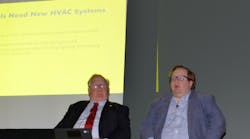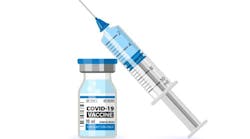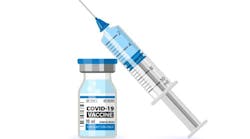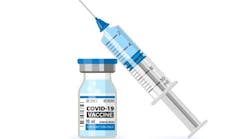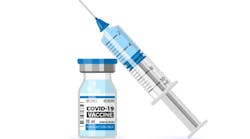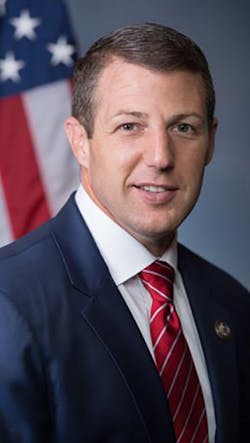May 4, 2020 — A US congressman who is himself an owner of HVAC/plumbing/construction businesses acknowledged today that the federal government's Paycheck Protection Program in response to the coronavirus shutdowns has helped many businesses, but those businesses must be allowed to open soon before they fail completely. He also said HVAC supply chain issues could slow an anticipated surge in HVAC system installations.
Markwayne Mullin (R-Okla.) spoke during a webinar sponsored by the Air Conditioning Contractors of America (ACCA) Political Action Committee. Mullin was elected to congress in 2012. His family business are Mullin Plumbing; Mullin Environmental; Mullin Plumbing West Division; Mullin Services; Mullin Properties; and Mullin Plumbing New Construction. Mullin currently serves on the House Energy and Commerce Committee whose broad jurisdiction includes issues important to rural Oklahoma including energy and environmental policy, health care, commerce, and manufacturing. He sits on three subcommittees: the Subcommittee on Environment and Climate Change, the Subcommittee on Health, and the Subcommittee on Oversight and Investigations.
It's been challenging, but Mullin takes it in stride. "That’s what we do as business owners. If you don’t want to face challenges in your businesses, you shouldn’t be in business. We babysit, we take care of problems. And this is just a different type of challenge. It’s something we all have to face and we will make it to the other side," he said, during a discussion moderated by Barton James, ACCA chief executive officer.
"Our business is down about 25 percent in some areas, and a bit more in others. Our renovation and new construction business has almost all but stopped. The remodel business was completely down, but is picking back up. We made some adjustments and were able to keep everybody on." Among his changes were to move remodeling division employees over to new construction projects and service and repair.
"Those who are skilled at a trade are working as helpers, but we are paying them at their full rate, because we know we will bounce back," Mullin said.
Mullin said the federal Paycheck Protection Program, which he supported, has the danger of providing a false sense of security to trade businesses, because there is no way to tell when local governments will allow other "non-essential" businesses to fully reopen. Those businesses provide a significant amount of work for trade companies.
Mullin did not address constitutional issues related to business closures.
"I have been critical of local governments – states and some mayors – who decided not to reopen even though their states have reopened. The federal government funded a mandate, unlike the unfunded mandate which put me in congress to begin with," Mullin shared. "THE PPP was a real good idea. The president, governors and other mayors are willing to restart businesses. Take our service and repair business. A good 40 percent of that was based in restaurants. A good 30 percent of our remodeling business was related to restaurants," which have been hit hard by the closures.
Mullin said "the clock is ticking" on how long he and other business owners can keep employees working, and he urged local governments to remove business shutdown orders.
"When local government is not willing to restart we have to absorb that Paycheck Protection loan that can be forgiven, provided we keep employees employed for a certain amount of time, and the clock is ticking on that. We have to get them back to work as soon as possible because we know we can’t maintain it. Now, in the second quarter, I think PPP has provide the extra cash that was needed to get people confident to move forward, but my personal opinion, and from talking from economists, that money will start running out at the end of the third quarter toward the end of the year. We will definitely be there if the jumpstart doesn’t bring a comeback quickly in this quarter. That PPP money will run out. Then we’ll have serious problems."
When asked if the Internal Revenue Service would tax monies provided through the PPP, Mullin said the IRS has not made a decision, since it is focused on working through 2019 tax returns. Language addressing taxable nature of the funds did not make it into the relief package.
"I think from here on out, any other package will be politically late, and it will be difficult to put anything on the president’s desk until after the election," Mullin said.
Mullin said a predicted surge in HVAC system installations could be stalled by supply chain issues related to COVID-19.
"Some supply chains are backed up and not all parts are readily accessible. They come from different regions," he said. "So, we’re concerned by that but are preparing for a surge because of that 15-year mark, and also due to the refrigerant change (R-410 replacing R-22). That’s a blessing for businesses, but many customers will be hurt financially, because they’ve had hours reduced or lost their jobs completely.
"But we’ve been talking to suppliers about what types of hiccups they will have, because they’ve had to follow separation requirements. They will have to decide whether they will make replacement parts in some of their factories and not others. Some have decided to forego making new parts or certain units and making only their hottest selling units and keep backlogs on the other models."
